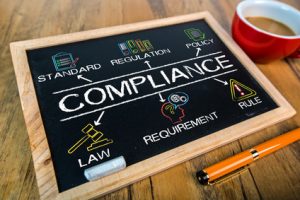What is Client Due Diligence?
The Singapore government has in place a preventive regime that detects and deters the illicit funneling of funds through its financial markets. Recently, it has signalled its stepping up of anti-money laundering (AML) efforts with new AML and enforcement departments formed at MAS.
What role does client due diligence play?
Client due diligence is central to Singapore’s effective anti-money laundering and counter-terrorism financing regime.It protects the integrity of businesses, financial institutions and the economy. Without this due diligence, institutions can become subject to misuse for purposes of money laundering, terrorism financing and corruption.
For more information on Singapore’s efforts against money laundering, please read our article here.
When does client due diligence begin?
Client due diligence is required when an institution covered by AML and Countering the Financing of Terrorism (CFT) regulations enters into a business relationship with a client. It means identifying the client and the persons connected to it and then verifying the information collected by obtaining supporting documents.
This process applies not only to new clients, but also to existing clients on an ongoing basis to ensure that records remain up-to-date and relevant. Due diligence checks are thus mandatory for all clients of corporate service providers such as Hawksford Singapore.
What supporting documents are required for the due diligence process?

Typically, documents required from clients include:
- Passport and/or NRIC of individuals
- Documents such as utility bills, bank statements, etc of individuals
- Details on the firm’s business and ownership structure
- Recent and current financial statements
These documents, as well as information from other regulated persons, help verify the identity, ownership and control structure of the client as required by legislation.
How long does the due diligence process take?
There is no fixed assessment duration.
The precise procedure and processing timeframe depend on the client’s profile and the speed at which clients provide the necessary information and documents. 3
How will my company benefit from this due diligence process?
Business transparency is vital for success and has risen to the top of many companies’ agendas.
Likewise, this robust monitoring system reduces the misuse of corporate vehicles for money laundering or terrorism financing, and increases trust in Singapore businesses across the board. Businesses operating here can also be assured of the integrity and stability of Singapore’s financial system.
“Contributing to an environment of business transparency is no longer a matter of PR, but a significant driver of growth at every level. Hawksford will continue to institute the highest standards of practice to advance the best interests of its clients,” said Ms Jacqueline Low, COO, Hawksford Singapore.
